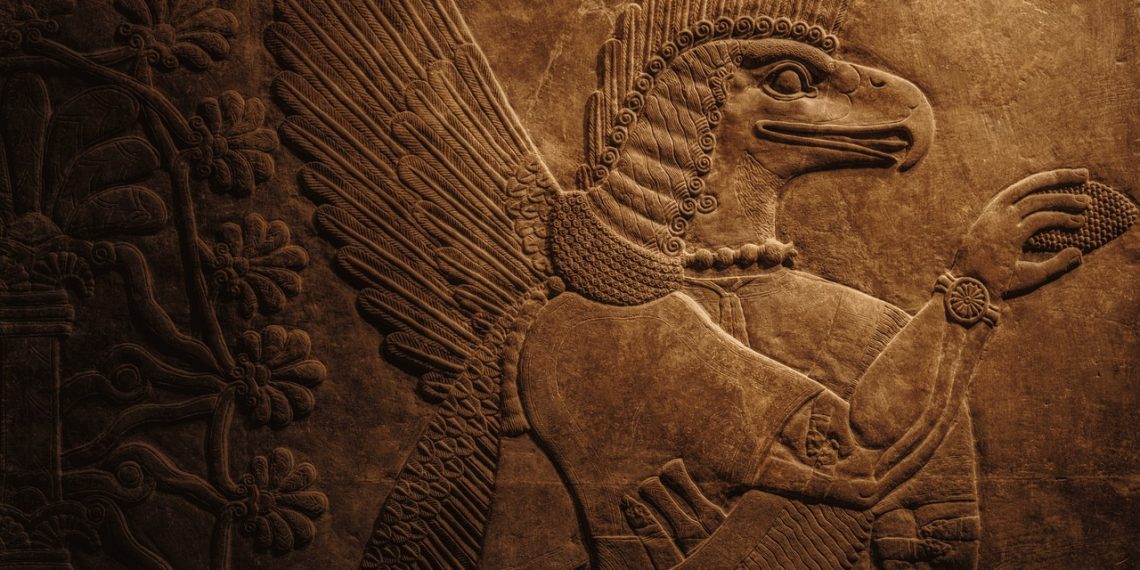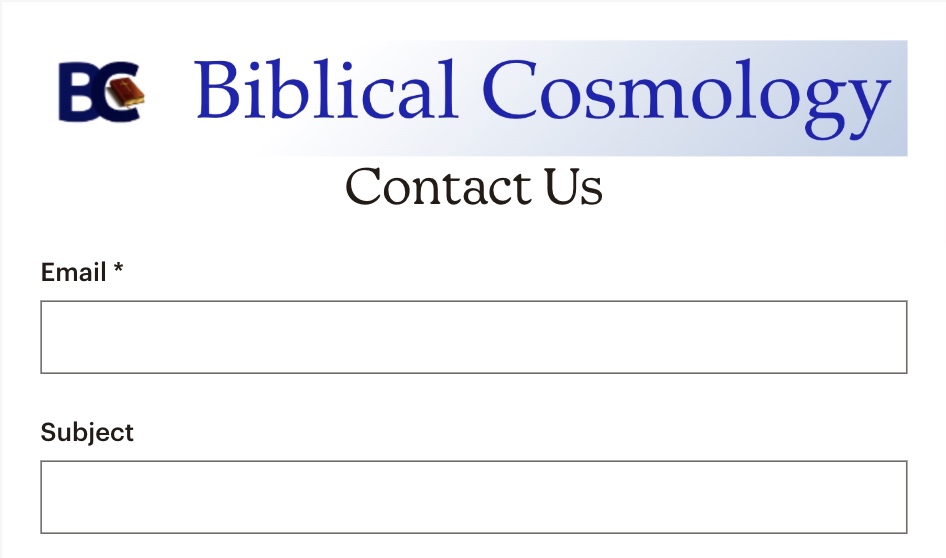Few people have been spared hearing such words as “Genesis is yet another myth, just a story for gullible people”. This statement, like others expressing frustration toward the first chapters of the Bible, has to stand to scrutiny before being considered valid. This is why, before asserting such thing, we must first answer the following questions: What is a myth? And does Genesis qualify as one?
Definition
A myth is a “traditional story, especially one concerning the early history of a people or explaining a natural or social phenomenon, and typically involving supernatural beings or events.”1From https://www.lexico.com/definition/myth I was looking for the broadest and clearest definition, to make sure not to leave out all that could possibly qualify as a myth.
In order to qualify as a myth, a story has to meet the following conditions:
- It must be traditional i.e., passed through tradition
- It must concern the early history of a people
- Or it must explain a natural or social phenomenon
- Or it must involve supernatural beings or events
We could be tempted to go through all these requirements one by one, and see where Genesis2Genesis Chapter 1, since it is the basis upon which the whole Bible is built. If it’s possible it’s a myth, it’s possible it may be untrue, which could in turn be the case with the rest as well. meets the conditions. But this doesn’t necessarily follow, as we’ll see.
A myth is a story, but not all stories are myths. In other words, even if we refute the proposition that Genesis is a myth, we’d still have to go through all the other genres that are also stories yet not myths, to see if it is also one of those. This includes legends, fairy tales, folktales, sagas, epics, fables3 , etc. “In Western culture there is a number of literary or narrative genres that scholars have related in different ways to myths. Examples are fables, fairy tales, folktales, sagas, epics, legends, and etiologic tales” https://www.britannica.com/topic/myth/Relation-of-myths-to-other-narrative-forms. Yet, it is possible to do an all-in-one refutation. The key to this refutation resides in this word that’s being repeated: story.
You see, “myth” is just the content, what matters is that it’s a story – the style. The common ground of all those genres is their style; they are stories. If a text doesn’t pass the first step – defining that it is indeed a story– it cannot go to the next one, which is defining the kind of story: a myth, a legend, a tale, a fable, etc. Likewise, if Genesis is a story, it may possibly be a myth, but not necessarily4. “Narrative history is the practice of writing history in a story-based form.” https://en.wikipedia.org/wiki/Narrative_history A good example is the book of Job.: is it a myth? A legend? A fairy tale? Yet if it doesn’t qualify as a story in the first place, it certainly can’t qualify as a myth, or a legend, or a fairy tale, nor any other narrative form or writing. Thus, the question is, does Genesis qualify as a story?
A story, you said?
What is a story? A story is “a narrative, either true or fictitious, in prose or verse, designed to interest, amuse, or instruct the hearer or reader; tale.”5From https://www.dictionary.com/browse/story The same holds true for myth.
Simply put, a story is a set of events that are about one or more main characters, written in a specific way. A story – a narrative – can be divided into five parts or stages6 “A traditional narrative arc has five elements, in the following order: Exposition, Rising action, Climax, Falling action, Resolution” https://www.masterclass.com/articles/what-are-the-elements-of-a-narrative-arc-and-how-do-you-create-one-in-writing#what-is-a-narrative-arc , also called Freytag’s pyramid https://writers.com/freytags-pyramid:
First part: the exposition
An exposition is “the insertion of background information within a story or narrative. This information can be about the setting, characters’ backstories, prior plot events, historical context, etc.”7From https://en.wikipedia.org/wiki/Exposition_(narrative)
The exposition sets the story. It answers the questions who, when, where and what:
- who is the story about
- when and where does the story take place
- what are the themes of the story
The exposition also includes the conflict8“Exposition sets up the story, including the setting, conflict and characters.” https://penandthepad.com/parts-plots-exposition-8457561.html, which is “a device characterized by a struggle between two opposing forces. Conflict provides crucial tension in any story and is used to drive the narrative forward. It is often used to reveal a deeper meaning in a narrative while highlighting characters’ motivations, values, and weaknesses.”9From https://www.masterclass.com/articles/what-is-conflict-in-literature-6-different-types-of-literary-conflict-and-how-to-create-conflict-in-writing10“Conflict in a story is a struggle between opposing forces. Characters must act to confront those forces and there is where conflict is born. If there is nothing to overcome, there is no story. Conflict in a story creates and drives the plot forward.” https://www.studiobinder.com/blog/what-is-conflict-in-a-story/ A simple example is this: “Dan wants to access the gold chest, but a dragon guards the way”
There are usually five types of conflict11 Some include a “Man vs technology” category and-or and also dissociate “Man vs God” into “Man vs supernatural” and “Man vs fate”. See https://www.masterclass.com/articles/what-is-character-vs-technology-conflict-learn-about-the-literary-conflict-with-examples#quiz-0 and https://blog.reedsy.com/guide/conflict/types-of-conflict/:
- Man versus man: two characters are against each other12“Man against man” conflict involves stories where characters are against each other.” https://en.wikipedia.org/wiki/Conflict_(narrative)#Man_against_man
- Man versus nature: the character is against an animal or nature13“Man against nature” conflict is an external struggle positioning the character against an animal or a force of nature, such as a storm or tornado or snow.” https://en.wikipedia.org/wiki/Conflict_(narrative)#Man_against_nature
- Man versus self: the character has to fight his inner nature; has to make a choice14“With “man against self” conflict, the struggle is internal. A character must overcome their own nature or make a choice between two or more paths—good and evil; logic and emotion.” https://en.wikipedia.org/wiki/Conflict_(narrative)#Man_against_self
- Man versus society: the character fights against an institution, a system, social rules or morals15“Where man stands against a man-made institution […] forced to make moral choices or frustrated by social rules in meeting their own goals.” https://en.wikipedia.org/wiki/Conflict_(narrative)#Man_against_society
- Man versus God or gods: the character is against a god, a supernatural entity, a fate, religion16“In literature, stories driven by character vs. god conflict feature a protagonist who is in conflict with a god, religion, or fate. The conflict can stem from a character’s inner turmoil with religion or an external clash with organized religion or an actual god” https://www.masterclass.com/articles/what-is-a-character-vs-god-conflict-learn-about-the-literary-conflict-with-examples
All those elements form the initial situation17“In plot structure, exposition is the initial situation of the characters when the story begins.” https://penandthepad.com/analyze-short-story-plot-2063744.html.
Second part: the rising action
The rising action “starts right after the period of exposition and ends at the climax. Beginning with the inciting incident, rising action is the bulk of the plot. It is composed of a series of events that build on the conflict and increase the tension, sending the story racing to a dramatic climax.”18From https://www.masterclass.com/articles/how-to-master-the-art-of-plot-development
The inciting incident is the vital part of the story. It is the one event that will upset the equilibrium in the life of the main character and cause him to go through a series of other events (conflicts or opposition) in order to resolve the main conflict and bring back the situation to normal. It is the very reason for which you have a story in the first place. Without the inciting element, you don’t have a story.
Third part: the climax
The climax is “the highest point of tension in a story line, often depicted by a confrontation between the protagonist and antagonist. A climax resolves the main conflict of the story and is the moment the main character reaches – or fails to reach – their goal.”19From https://www.masterclass.com/articles/how-to-structure-a-climax#what-is-the-climax-of-a-story see also: “Climax is the highest point of tension or drama in a narratives’ plot. Often, climax is also when the main problem of the story is faced and solved by the main character or protagonist” https://literaryterms.net/climax/
Fourth part: the falling action
Following the climax, the falling action “deflates the plot’s tension and gives the character time to unwind after the emotional scene.”20From https://www.masterclass.com/articles/how-to-master-the-art-of-plot-development#what-are-the-elements-of-a-good-plot see also: “Falling action refers to the events that follow the climax of a story. While rising action builds tension throughout the story, falling action decreases that tension. It leads to the character’s ultimate resolution.” https://examples.yourdictionary.com/what-is-falling-action-purpose-in-a-storys-plot.html
Fifth part: the resolution
The resolution is “the conclusion of a story’s plot and is a part of a complete conclusion to a story. The resolution occurs at the end of a story following the climax and falling action. In some stories, climax and resolution occur simultaneously.”21From http://www.woodheadpublishing.com/literary-devices/resolution see also: “The resolution, also known as the denouement, is the conclusion of the story’s plot. It’s where any unanswered questions are answered, or “loose ends are tied.” https://literaryterms.net/resolution/.
The resolution is similar to the denouement22“Denouement occurs at the very end of a story, usually in the final chapter or epilogue. It is the point in a story where all plot lines are tied up and any remaining conflicts or questions are resolved.” http://www.woodheadpublishing.com/literary-devices/denouement, although there are slight differences23“A resolution is where a character within literature solves a problem. […]; A denouement means that all problems within the plot have been solved and the story can end.” https://study.com/learn/lesson/denouement-examples-structure.html Also, a denouement is not always present: “the ‘open-ended narrative’ in which the conclusions are not clearly stated. The reader is left to resolve the situation with her/his imagination.” https://www.bluepencilpublishers.com/the-open-ended-story/.
These stages are mutually exclusive;: as soon as one of them is not in the text, the proposition is invalid. Likewise, they all must happen to the main character; as soon as one of the stages does not happen to the main character, the proposition is invalid.
Just as for the myth, we could go through all of these stages one by one, and see if Genesis somehow ticks the boxes or not. The fact is, again, we can directly get to the heart in order to refute the whole proposition: the inciting incident.
To the point
The inciting incident is the linchpin that holds the whole story together. It is the precise reason for which you have a story. Without it, you don’t have an exposition, since nothing is going to change, and you don’t have the rising action, nor the climax, nor the falling action, nor the resolution, precisely also because nothing changed. In other words, without this one event, you don’t have a story – at all.
Remember, all stages are dependent upon the previous one. The last 4 stages hold on to the inciting incident as it modifies the initial situation; because, if that doesn’t happen, they simply don’t exist.
Now, can you identify the inciting incident in Genesis? Remember, it has to be an event that happens to the main character, disrupting his life, causing him to do something in order to resolve a conflict and restore the equilibrium in his life that was upset. Also, would you be able to identify the conflict?
Take note of the point of this article: There is no event that disrupts God’s existence, causing him to create the world, to resolve a conflict of his in order to have the course of his “life” back to normal again. Genesis does not have an inciting element; it is not a story, it is not a myth. See the Modus Tollens24“also known as denying the consequent, [it] is a deductive argument [that] takes the form of “If P, then Q. Not Q. Therefore, not P.” https://en.wikipedia.org/wiki/Modus_tollens below:
- If P then Q. Not Q, therefore not P; with P = Genesis is a story and Q = there is an inciting incident.
- If Genesis is a story (P), then there must be an inciting incident (Q). There is no inciting incident (not Q), therefore Genesis is not a story (not P).
Since Genesis doesn’t pass the first step – it cannot be defined as a story, then it cannot be a myth, or a legend, or a tale, nor any other form of narrative.
What is Genesis, exactly?
The question stands: Since Genesis is not a narrative of any form, what is it?
- Genesis is a text that reports a series of events that took place at a certain time in the past; therefore, it is a record.
- These events concern the first six days of our physical reality; therefore, they belong in the genre of History.
In conclusion, Genesis is a historical record25“writing having historical value (as opposed to fiction or myth etc.)” https://www.thefreedictionary.com/historical+record; and as such, is literal by definition26 A historical writing ( record or narrative) cannot be figurative. The point of being historical is that the events reported actually happened in reality as reported. If it is figurative, it is not history anymore. This is why, if a writing is history, it is not to be taken figuratively, or else you would be breaking the law of non-contradiction.







